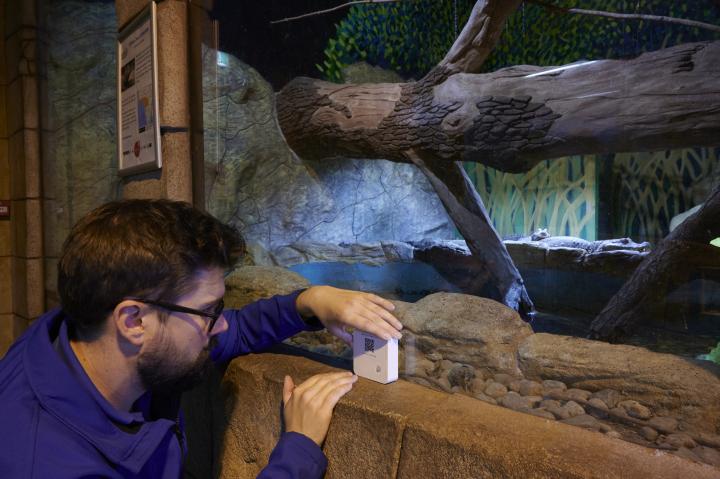University Of Edinburgh: Sensor Network in Schools Enhances Pupils’ Data Skills
The network is already giving thousands of students from more than 40 schools in Edinburgh, Fife, the Lothians and Borders access to the latest indoor smart technology, capable of measuring CO2, humidity, light, air pressure and temperature levels.
The £9.5 million scheme also provides some schools with outdoor air quality monitors, soil moisture sensors and weather stations.
IoT Network
Launched in 2019, the IoT Schools Network is currently embedded in 43 of the region’s schools, doubling to 86 when all schools in West Lothian become operational in the next month, and the majority of the remaining 525 schools expected to join by the end of the school year.
It has already injected new life into science classes throughout the region and given pupils the opportunity to explore and analyse environmental data first hand, experts say.
Environmental data
Each sensor is linked to a high performance computer at Edinburgh’s International Data Facility – where the data is transformed into graphs and charts that learners and teachers can readily access online.
Some pupils have used the data to improve their classrooms. For example, Addiewell Primary School in West Lothian has installed a living wall filled with colourful plants and reduced the lighting to improve the learning environment.
The same class also compared the humidity levels of their classroom to that of the crocodile enclosure at the nearby Five Sisters Zoo, and were amazed by the stark differences they found.

Inspiring careers
Empowering young people to navigate an increasingly complex digital landscape will hopefully inspire them to study STEM subjects and follow a career in data-driven industries, according to the project leaders.
The IoT Schools Network is one of more than 3,000 research ventures involved in the University’s Data Driven Innovation (DDI) programme, now celebrating its fifth year.
Data Driven Innovation
Launched in August 2018, DDI is part of the Edinburgh and South East Scotland City Region Deal and funded by the UK and Scottish Governments.
DDI aims to establish the region as the Data Capital of Europe through drawing inward investment, inspiring entrepreneurship and delivering inward economic growth.
The programme strives to connect University researchers with business partners in the public, private and third sectors, using data to tackle real world challenges and inspire innovation.
DDI has backed the development of the University’s Usher Institute, Edinburgh Futures Institute, the Bayes Centre, Easter Bush Campus and the Robotarium – a joint partnership with Heriot-Watt University.
Data is all around us, shaping the way we live, work and engage with each other: our goal to make the digital sector more accessible to young people is therefore clear.
“The Internet of Things schools’ network aims to give pupils the confidence, competence and ambition to use data to benefit themselves and their communities in an ever-changing digital world.
“Today, even more schools are taking part and by the end of this school year we will have rolled the project out to the vast majority of south east Scotland’s local authority schools, making it Europe’s largest IoT network.
The Internet of Things schools programme is an excellent example of how the City Region Deal is creating exciting opportunities for future generations, and innovating to tackle real-world issues.
“This pioneering programme is empowering young minds to gather and use data to learn about their environment, and will hopefully inspire and prepare students for potential careers in the data-driven economy.
“The UK Government is investing £261m in the Data-Driven Innovation programme and more than £380m in levelling up across South East Scotland.
Internet of Things technology is transforming how we all live our lives, from checking the weather to inspiring green growing walls to improve the school environment. This Edinburgh and South East Scotland City Region Deal-funded project demonstrates to the next generation the value of science and technology.
“By turning cutting edge research into businesses, we are supporting the entrepreneurs of the future and helping achieve the vision set out in the National Innovation Strategy for Scotland to become one of the most innovative small nations in the world over the next decade.

